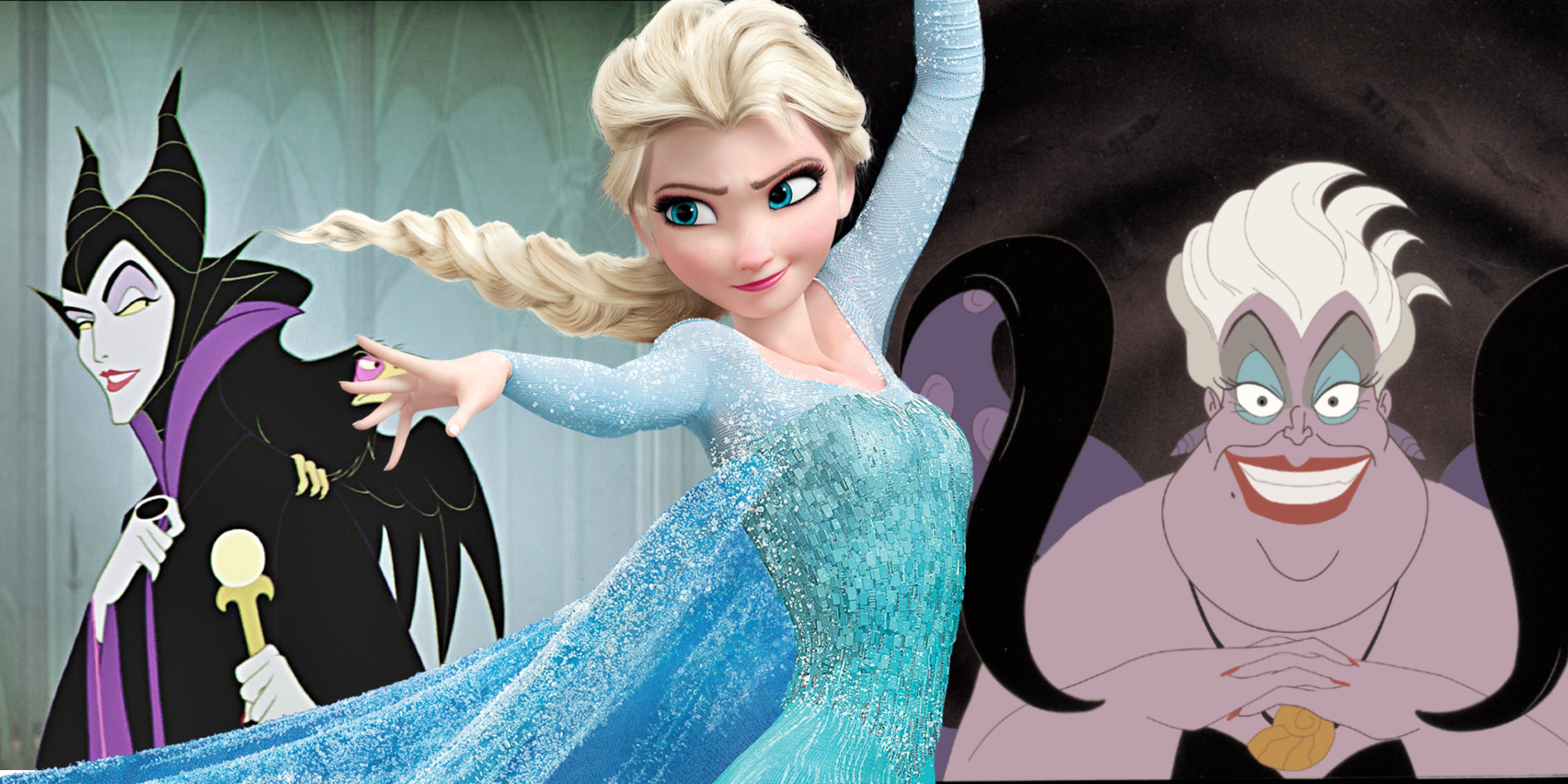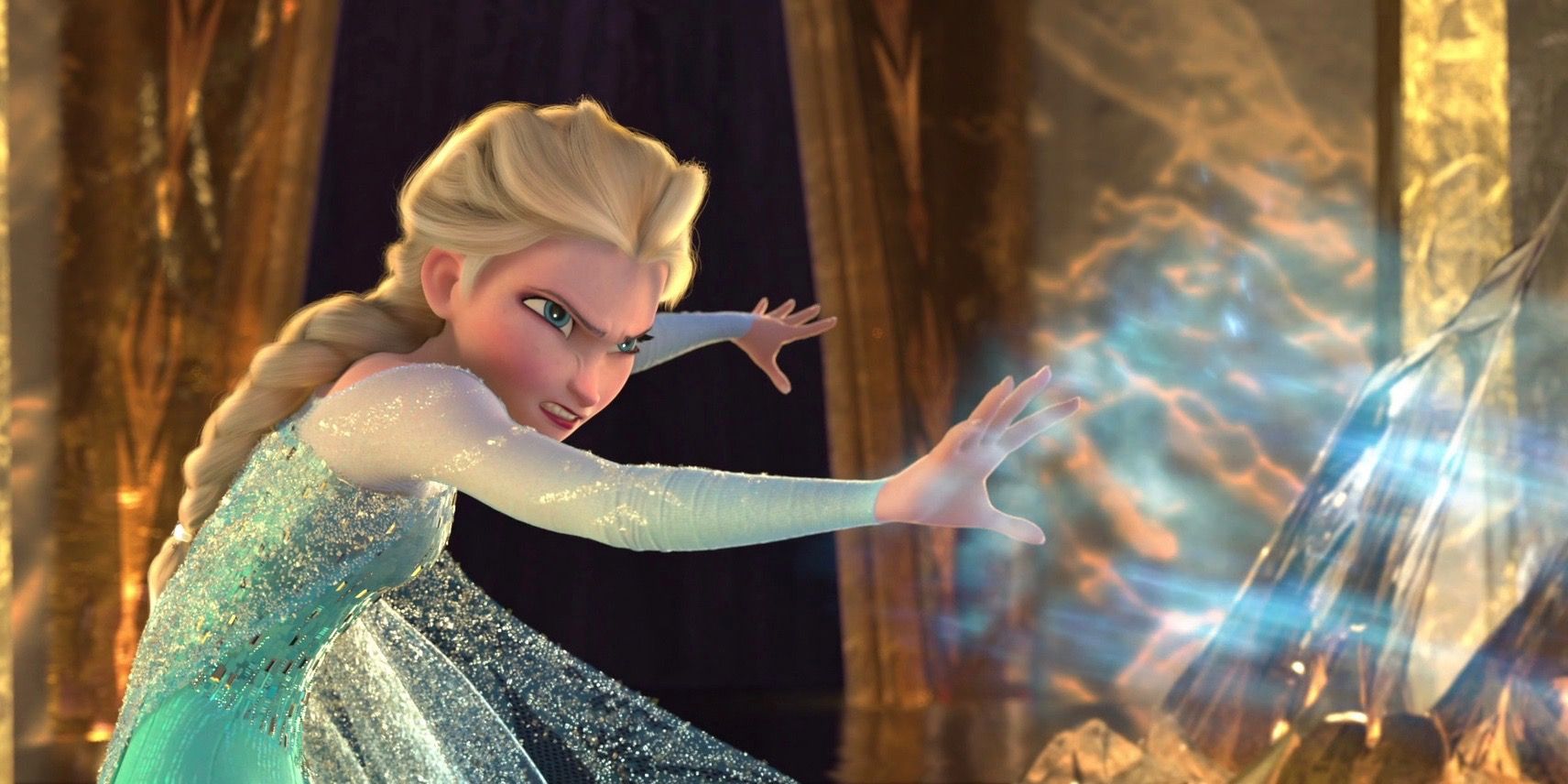Frozen: Elsa's Powers Prevent Her From Being An Official Disney Princess

Despite her popularity, Elsa of Frozen fame has never become an official Disney princess, and one reason why may be her magical powers. Unlike other princesses in the official lineup, Elsa has magic she can actively control. Elsa's ability to manipulate ice and snow makes her the most powerful princess figure in the Disney franchise and sets her apart from the 12 official princesses.
To make the cut as a Disney princess, characters must be human or at least semi-human (like Ariel), star in an original film and be royal by birth or marriage. Mulan is an exception to the rule since she gained admittance to the ranks through an act of heroism rather than royal status. Magical ability has never been a qualifying characteristic for a Disney princess, although some do have a touch of mystical power. All of the princesses can communicate with animals, a tradition that started with Snow White. In addition, Ariel has conversations with aquatic animals before and after she becomes human. Pocahontas also has a strong connection with animals and nature, as well as the ability to communicate with spirits like Grandmother Willow.
Recent Disney princesses like Moana have stronger powers but limited control over their abilities. Moana, who stars in the movie of the same name, has a connection to the ocean, but can't manipulate water at will the way Elsa can manipulate snow. Rapunzel, from Tangled, has magic, glowing hair that can heal wounds and maintain youth, but it's merely a conduit of the power of a rare flower. Elsa, on the other hand, was born with her magic. She unleashes her full power in Frozen and grows stronger in Frozen 2. Elsa's character was already distinctly different from official princesses, but her magical ability widens the gap. Elsa's power is traditionally a characteristic of Disney villains, aligning her more closely with the evil queen archetype than the powerless heroine.

In the classic stories adapted for Disney's princess films, the heroines typically don't possess magical abilities — but the villains often do. In most Disney movies, powerful women are the villains of the story. Snow White has the evil queen, Sleeping Beauty has Maleficent and The Little Mermaid has Ursula. The magic these characters possess is often associated with evil and isolation. Disney villains use their magic to try and gain power, reshaping society so they are in charge. From the beginning of Frozen, Elsa's character is more like Ursula than Ariel. Elsa is taught to hide her power to fit in with others, and the revelation that she has magic prevents her from becoming Queen of Arendelle. When Elsa unleashes her power in a bid for freedom, she becomes an exile of the kingdom. She's able to live without fear, but can no longer be around her loved ones.
Throughout Frozen, Elsa walks a thin line between good and evil, struggling to gain control over her magic. During the movie's climax, Elsa's feelings of isolation and fear cause her to lash out Anna, almost killing her. In this moment, it seems like Elsa is a step away from becoming the evil queen Disney audiences are so familiar with. By rescuing Anna, Elsa is able to redeem herself, striking a balance between her magical power and her duty to Arendelle. Frozen is now famous for breaking Disney tradition by eliminating the "true love" storyline, but it also departs from canon in a more subtle way. By giving Elsa magical power, the House of Mouse sends a message that powerful women can be a force for good. Unfortunately, they undercut that message a minute later by keeping Elsa off the official Disney princess roster.
from ScreenRant - Feed

